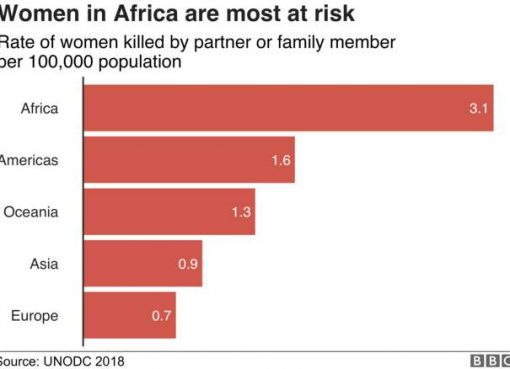The Chinese have become a staple in Kenyan economics, straddling all facets from manufacturing in China, exporting, distribution and now retailing.
It has been called a Chinese economic invasion, likened to the fabled camel that was permitted to stick its nose into the tent, then forced its entire body inside and drove the owner away.
China’s growing involvement in the informal and formal trading sector in Kenya is causing jitters.
Local traders in Gikomba and other trading hubs such as Luthuli Avenue, River Road, Nyamakima and Kamukunji markets are pining for the government to protect them from the threat posed by foreigners, mostly Chinese, who have infiltrated the sector.
On Thursday, the government deported seven Chinese nationals who were trading in second hand clothes at Gikomba market.
“Officers established that three of them had no valid work permits while the other four have been engaging in unauthorised employment and other income generating activities,” a statement from the Ministry of Interior said.
A trader lamented. “I have been in this market for 30 years and since the Chinese came, there are a lot of counterfeit items. A customer will ask for Adidas but what we have is Adibos.”
But Gikomba is just the tip of the iceberg. In Nairobi trading hubs, it is unsurprising to come across a hardware or electronics shop with a Chinese name or even haggle with a Chinese national about the price of an electrical fitting.
The Chinese have become a staple in Kenyan economics, straddling all facets from manufacturing in China, exporting, distribution and now retailing.
Import in bulk
The number of warehouses in Industrial Area and along Mombasa Road owned by Chinese nationals are anecdotally high, a source says.
Most of them supply and retail electric cables, utensils, building materials and toys, among other products that they import in bulk.
The influx of Chinese nationals, most of whom came to work in a number of infrastructure projects but have now diversified into other projects such as trade, business and mining, is the bane of traders.
The issue, the traders say, extends beyond race to unfair business practices, which are undercutting them.
“Our businesses have been greatly affected because they (Chinese) stock the same goods that we are selling. As foreigners, we buy these goods from their country at higher prices, they follow us and get the goods at lower prices then come and sell them here,” says a trader.
But the local traders are caught between a rock and a hard place, some have had to contend with stock out as the government holds containers in a clamp down on the proliferation of counterfeit goods from China and competition from Chinese traders locally.
“Since the Chinese came to Kenya, we have to wait for them to sell first so that we can also sell. There have been delays at the port but that did not affect them, they kept restocking their shops,” says Margaret Wangare.
Illegal tea processing
According to the Kenya Citizenship and Immigration Act 2011, it is an offence for any foreigner in Kenya to engage in trade, farming, business and professional employment without a permit.
In November last year, a Chinese national was fined Sh1.4 million or sentenced to two years in jail for engaging in illegal tea-processing and packaging business in Kiawara, Nyeri County.
He Zhifhang, a civil engineer at China Machinery Engineering Company, which is constructing the Kiawara-Nairutia road, and a Kenyan accomplice pleaded guilty to the charge of processing and repackaging tea without the government’s authority.
In Nyeri, local quarry owners have protested the involvement of Chinese stone crushers in the stone chip business. The managers of a quarry in Chaka owned by a Chinese company, which is building a road in Nyeri, are on the spot for selling crushed rock to individuals yet the quarry has been licensed to produce raw material for road construction.
James Mugo, a right’s activist in Nyeri, says the involvement of the company has driven local firms out of business.
“They can set the price the way they want and still make a profit since they are tax exempt to produce raw material for building a road,” he said.
But the effect of Chinese involvement is not only limited to trade, fishermen and farmers have also been caught up in the war against imports from the Orient nation.
Cheaply imported
Fruits such as apples, oranges and condiments such as ginger and garlic – which are cultivated in the country – are cheaply imported from China, undercutting local producers. The bulbous white Chinese garlic is more popular in the local market compared to the local ones cultivated in parts of Nyeri County.
The ripple effect is on the farmers, most of whom, like the small scale traders, have been forced to reduce their prices to unsustainable levels to compete with the influx of Chinese imports.
A quick check on supermarket shelves across the country will uncover the extent of Chinese presence in the Kenyan markets and the appetite Kenyans have for their products.
In November last year, President Uhuru Kenyatta ordered a ban on the importation of fish from China, which had flooded the market, elbowing out catches from Lake Victoria.
But the Department of Fisheries walked back the directive less than three months later after China threatened to pull finances for projects the country is undertaking in Kenya.
Credit: The Standard





